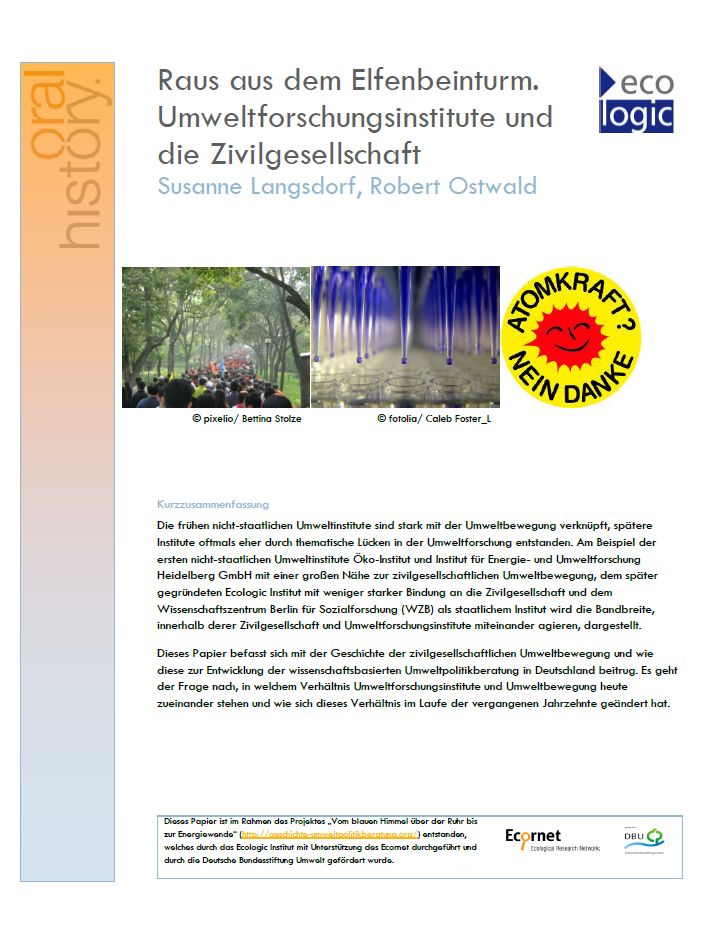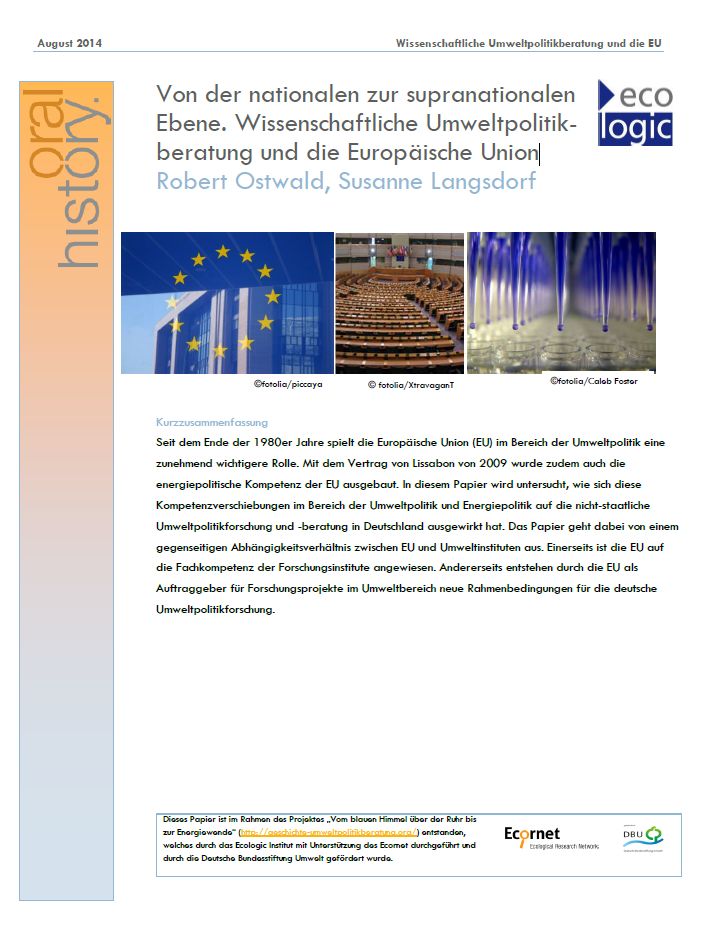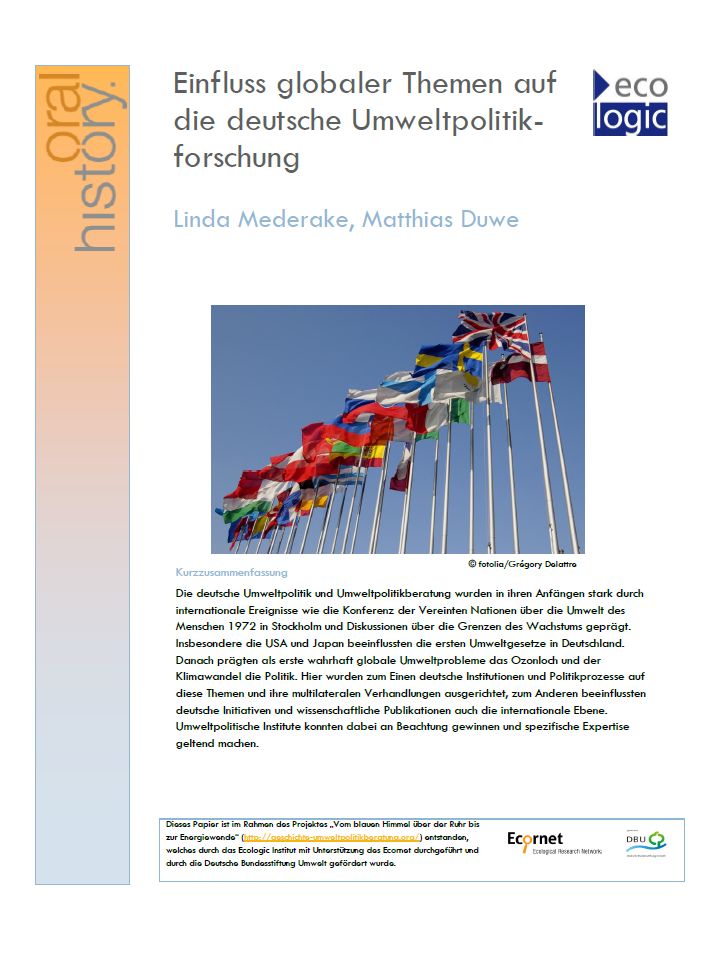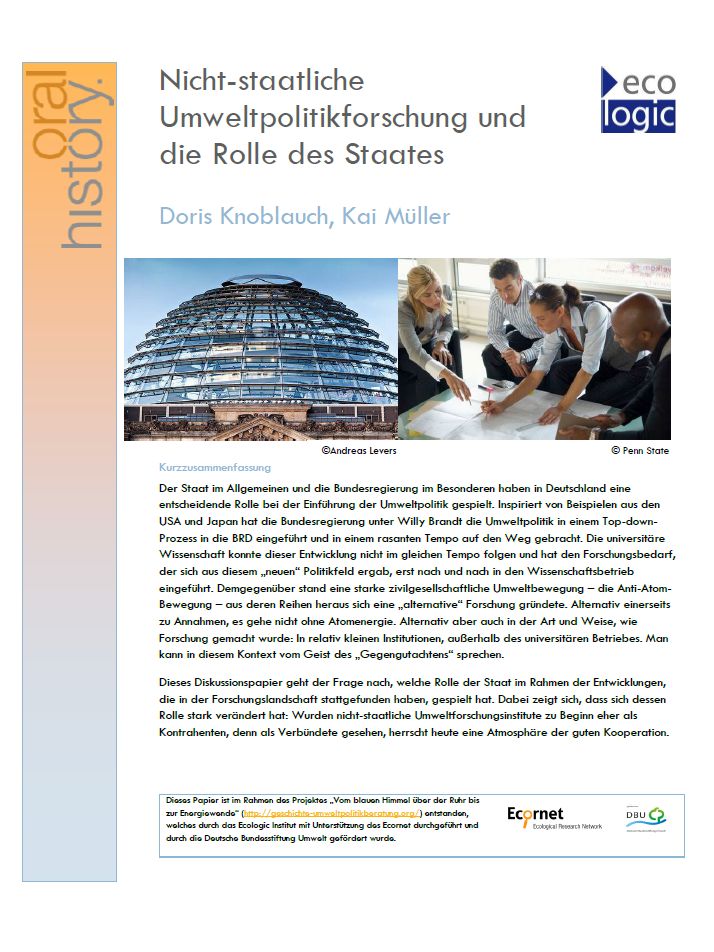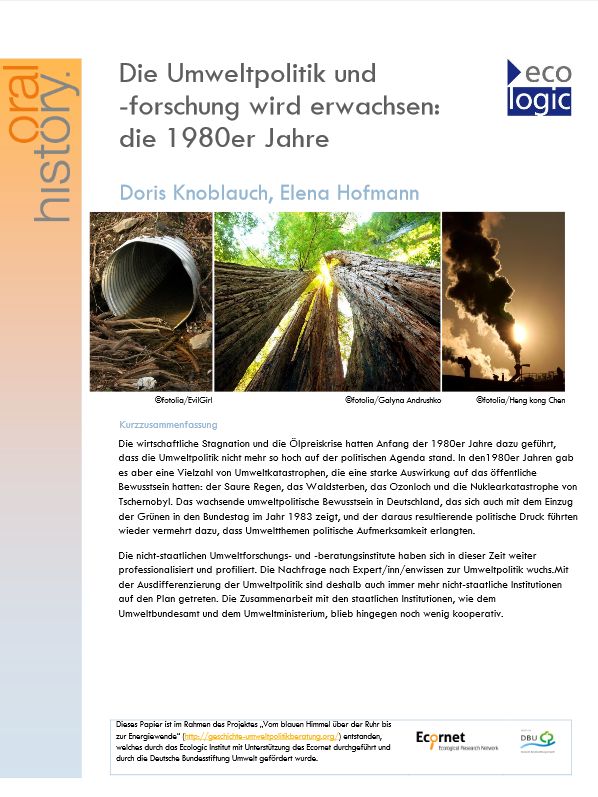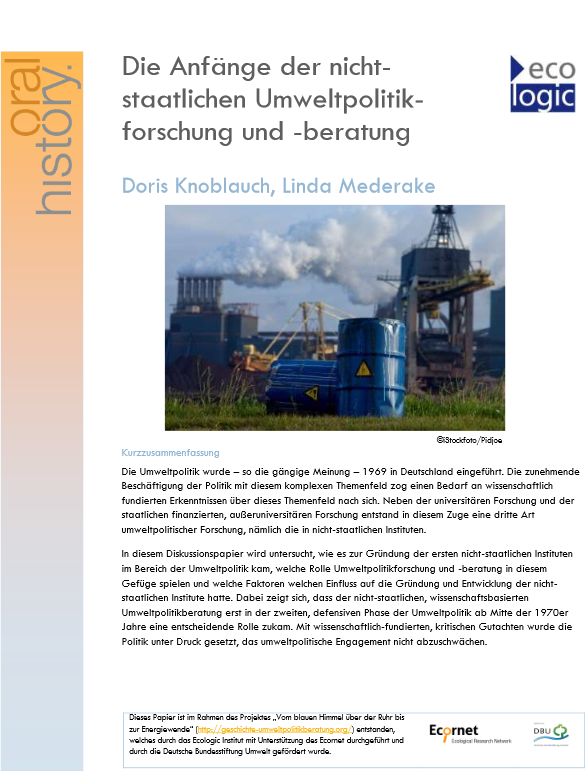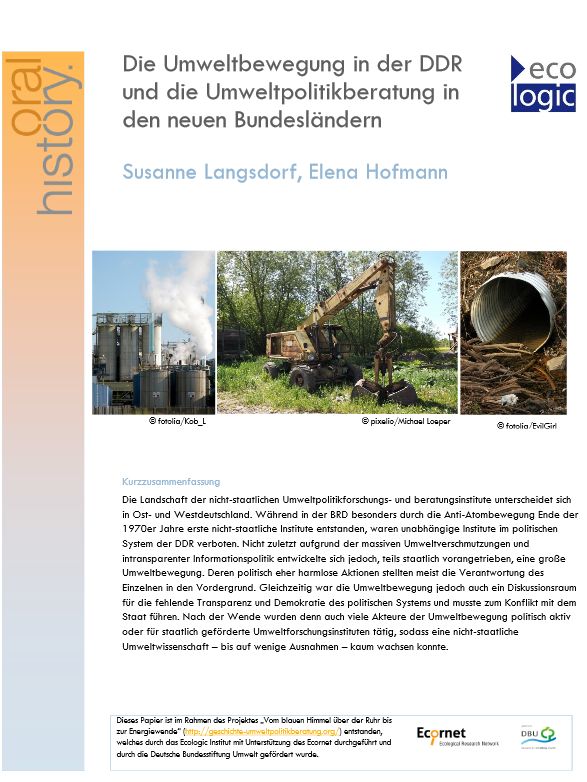The Maturation of Environmental Policy Research: The 1980s
- Event
- Date
-
- Location
- Berlin, Germany
- Speaker
-
Dr. Volker HauffMichael Sailer
In the third event of the series, Dr. Volker Hauff, former Federal Minister, and Michael Sailer, Chief Executive Officer of Öko‑Institut, discussed the increasing cooperation between the government and environmental research institutes in the 1980s.
Dr. Volker Hauff was Federal Minister for Research and Technology from 1978 to 1980 and Federal Minister for Transport under Chancellor Helmut Schmidt from 1980 to 1982. During this time and during the subsequent years in opposition, he not only watched the early collaboration of the state and critical environmental research, but also actively shaped it. Michael Sailer, currently the Chief Executive Officer of the Öko-Institut and a member since 1980, experienced this development from the perspective of environmental institutes.
In their conversation, the two experts first exchanged views about the mistrust that prevailed on both sides at the time. On the governmental side, there were nonpartisan concerns regarding the administrative competence of the new institutions, but also more ideologically motivated concerns against the critical researchers. The latter resulted sometimes in awarding only "alibi research", without being truly interested in the results. For environmental institutes, there was also great distrust – some critics denounced even the attempt to cooperate with the government as corrupt.
Nevertheless, the relationship between the government and critical environmental researchers normalized during the eighties, despite years under the less accommodating government of Chancellor Kohl. During this period, governmental representatives and critical environmental researchers learned that communication with the other side was necessary in order to promote good environmental legislation.
Capacity building within the environmental institutes as well as the demand for environmental consulting helped improve the cooperation between the two sides. The Öko-Institut learned how the state “worked” and took a more transdisciplinary approach in the mid-eighties. By strengthening their expertise in the social sciences, the Institute could better understand the governmental actors and their scope, which enhanced the dissemination of technical knowledge. In addition, the government began to approach the Öko‑Institut more often to consult on environmental matters – particularly after the Chernobyl disaster when content related questions, like reactor safety, became more prominent.
Dr. Hauff and Michael Sailer also discussed their personal experience of the maturation phase of environmental policy research – when their two lives crossed paths. In a hearing on Nuclear Safety in 1979, Dr. Hauff stated that the “[Ministry] would also support requests from critics, but we don’t get any”. This motivated Michael Sailer and his colleague Lothar Hahn to “try it out” and apply for funding. Indeed, the Öko-Institut was awarded a contract on behalf of the BMBF, which was an important basis for the stabilization of the institute. Michael Sailer, however, did not fully support the claim made by Dr. Hauff that the BMBF accelerated the establishment of the Öko-Institut. Even though Michael Sailer agreed that the "civil dialogue" initiated by the BMBF was a positive step towards cooperation, the institute continued to encounter strong opposition from the government. Nevertheless, both experts saw a sharp learning curve on both sides and stressed the importance of transdisciplinarity for policy and science to bring environmental issues forward.
A question and answer session followed the experts’ conversation, which discussed the following topics:
- The impossibility of promoting critical institutes during the initial phase ("political suicide")
- The unique position of environmental policy in comparison to other policy areas in which less diversity in consulting prevails
- The importance of environmental crises for the development of environmental policy and the consequences this has on "insidious crises", such as climate change
- The advantages and disadvantages of basic funding for independent institutes



